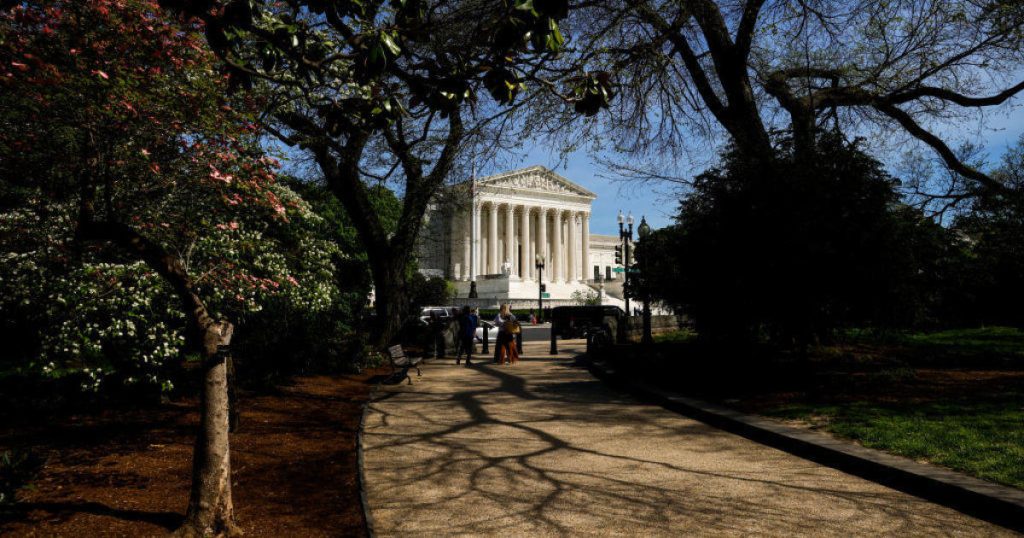The Supreme Court is hearing arguments in a case regarding the constitutionality of laws that ban public camping, which has implications for how cities and states respond to high rates of homelessness. The case involves Grants Pass, a city in Oregon, where homeless individuals are punished with civil citations for camping on public property. The city’s ordinances define camping broadly and violators face fines and potential jail time. Homeless individuals sued the city, arguing that the ordinances violated the Eighth Amendment’s protections against cruel and unusual punishment. Lower courts ruled in favor of the homeless individuals, but Grants Pass officials have appealed to the Supreme Court.
The dispute has emerged amid a rise in homelessness in the U.S., with an estimated 256,000 unsheltered people on a given night in 2023. High housing costs and the expiration of pandemic-era assistance programs have contributed to the increase in homelessness. Grants Pass has faced criticism for its enforcement of public camping ordinances, with advocates arguing that the city is punishing individuals for simply trying to survive outdoors without access to shelter. Efforts to address the homelessness crisis have attracted input from advocacy groups, law enforcement organizations, cities, states, members of Congress, and the Biden administration.
The Justice Department has weighed in on the case, arguing that the Eighth Amendment prohibits local governments from effectively criminalizing homelessness by preventing individuals without access to shelter from residing in certain areas. While the government supports the principle, it believes that broad injunctions issued by lower courts could limit cities’ ability to respond to public health and safety concerns related to homelessness. Major cities like Phoenix and San Francisco have expressed concerns that the lower court rulings have hindered their ability to address issues related to homeless encampments and public safety.
The case before the Supreme Court has significant implications for how cities and states approach homelessness and respond to encampments on public property. The outcome of the case could impact how local governments enforce laws related to camping and sheltering in public spaces. Ultimately, the Supreme Court’s decision in this case will shape the legal landscape surrounding homelessness and may influence policies aimed at addressing the challenges faced by individuals experiencing homelessness in the U.S. A decision from the Supreme Court is expected by the end of June.


